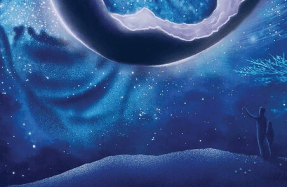
FEATURE THE SEARCH FOR LIFE
Watch Prof Brian Cox's new series The Planets, coming soon to BBC Two. Check Radio Times for details.

It has been just 18 months since an Ariane 5 rocket launched the James Webb Space Telescope into space. A collaboration between NASA, the European Space Agency (ESA) and the Canadian Space Agency, Webb has been widely touted as the successor to the Hubble Space Telescope. Indeed, it possesses observational capabilities that the astronomers who launched Hubble back in 1990 could only dream of.
Yet even as Webb shot into space on 25 December 2021, the astronomers watching it were already dreaming of the telescope that might succeed it. This was because they already knew the extent of Webb's potential: the size of its mirror, the wavelengths it could observe and the capabilities of its instruments.
“Even before it was launched, we were like, ‘we need this other telescope that's going to be bigger,” says Sarah Rugheimer, professor of astrophysics at York University, Toronto, Canada.
Big telescopes take a long time to develop – decades in most cases – and so planning starts early. “You don't just wait to see what happens with a telescope like Webb because you already know, theoretically, what some




